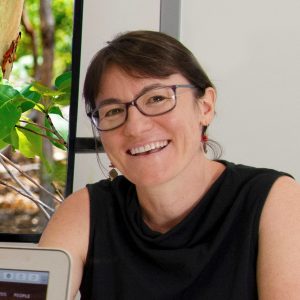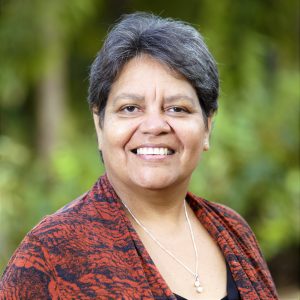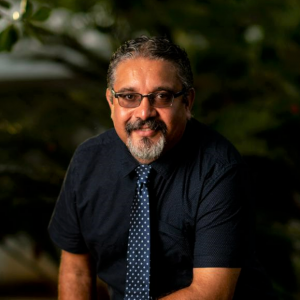Pathways into Teaching for First Nations students
Establishing a pathway from Secondary School VETDSS to a Bachelor of Education for First Nations students
Over two years, this project will address the HEPPP issues of enrolment and completion for Indigenous students by adding knowledge about pathways into Higher Education from Secondary School VET courses.
This will be achieved by investigating current CDU pathways de-identified data, as well as NT Department of Education VETDSS (VET Delivered in Secondary Schools) and Career Education policy documents.
Data will include information about pathways accessed by students in the current Remote Aboriginal Teacher Education (RATE) program.
Online surveys will be conducted with NT Department of Education staff, school based VETDSS/Career coordinators, CDU VET lecturers in Education Support and CDU HE Teacher Education lecturers.
Semi-structured interviews will be conducted to collect further information. Consideration of culture for Indigenous engagement will be built into the project through the types of questions asked about perceived successes and barriers as they may apply to Indigenous cultural inclusion or Indigenous knowledges.
Pathway requirements for VETDSS students in Certificate III in School Based Education Support to enrolment in CDU HE Bachelor of Education studies will be mapped.
Indigenous pedagogical principles designed in a previous CDU Rainmaker 2021 Differentiated Pedagogies project will be linked to the VETDSS to B.Ed pathway as a model.
Recommendations will be established for the successful engagement of Indigenous students from VETDSS Cert III in School Based Education Support through to enrolment into a Bachelor of Education, and how this is promoted to Indigenous secondary school students.
Indigenous engagement with Teacher Education is a continuing concern in the NT. Indigenous teachers constitute a small percentage of the total teaching workforce (only 5.4 per cent of classroom teachers and 6.3 per cent of senior teachers in NT Department of Education schools); a critical issue with the higher percentage of Indigenous people in the NT being approximately 30.3% of the NT population. CDU has a significant role to play in increasing Indigenous teacher numbers.
Increasing culturally safe and accessible support for Indigenous candidates to enter HE pathways to education careers will help to ‘Indigenise’ Education qualifications at CDU. Creating uniquely qualified ‘Territory’s Own’ teachers that know the needs of Indigenous students will strengthen the NT teaching workforce while providing all students with an increased opportunity to achieve academic success. The project will clarify and increase awareness about the potential for a VETDSS to HE pathway as a practical solution for increasing the numbers of Indigenous teachers in the NT.
The research proposal strongly aligns with the CDU Strategic Plan. Although the main impact will be to ‘First Nations,’ the broader impact would include cultural competence and inclusion benefiting students and educators.
Do we need better pathways for First Nations educators at CDU?
We are conducting a three-year study on the experiences of undergraduate First Nations students at CDU. By participating, you’ll help CDU better understand and address First Nation students’ needs. There will be questions asking about your studies, motivations, weekly commitments, support networks and whether you access services and support at CDU. The online survey is completely anonymous, confidential and aims to:
- Investigate a VET delivered study pathway to becoming a qualified teacher
- Support the increase in numbers of First Nations teachers in the NT
- Clarify challenges that students face completing their studies (eg. enrolment and completion).
Find the survey and more information at Pathways for teachers
Recording: Establishing pathways into Teaching for First Nations Students
Speakers: Dr Tracy Woodroffe & Dr Johanna Funk
Team
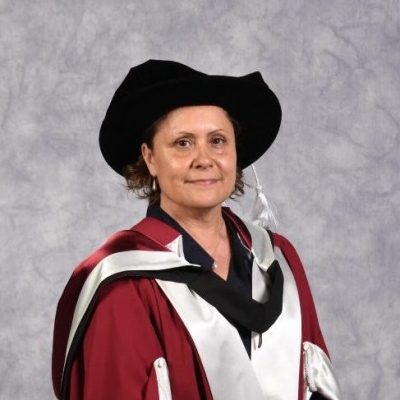
Dr Tracy Woodroffe
Dr Tracy Woodroffe is a local Warumungu Luritja educator with extensive teaching experience and an Early Career Researcher with a growing track record. Dr Woodroffe is the lead researcher for this two-year project. Her research experience and focus is educational pedagogy, identity, Indigenous perspectives, and the use of Indigenous Knowledges in educational contexts. Dr Woodroffe has been both a team member and the lead CI on numerous successful research projects which can be seen on her CDU profile. Past research has included research with and within the NT Department of Education.
T: 08 8946 6624 E: Tracy.Woodroffe@cdu.edu.au
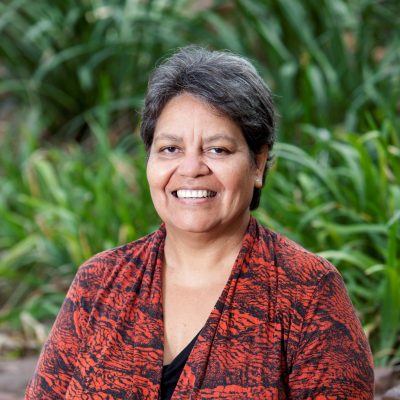
Associate Professor Linda Ford
Professor Ford in Northern Institute/CIFEA has a strong research track record and extensive research portfolio in Indigenous Research. She will also be the Principal Investigator for a different HEPPP Outreach Project. Dr Ford’s extensive research experience will be invaluable in networking for participant recruitment, data analysis, written reports, literature review, publications, and presentations.
T: 08 8946 7203 E: Linda.Ford@cdu.edu.au
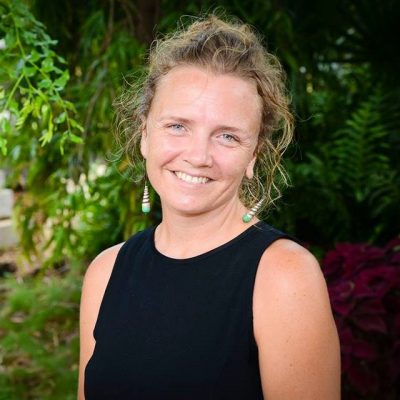
Dr Johanna Funk
Dr Funk’s research interests are in the developmental evaluation of educational programs and student experience. Having started work on the CDU and Department of Education Project ‘PreVET in 2012, completed her PhD in Open Educational Practices with Indigenous Workforce development in 2020, an open University Fellowship in Cultural Competence and Workforce Competence in 2021, and a Scholarship of Teaching and Learning (SOTL) Project in Education Units in 2022.
T: 08 8946 6819 E: Johanna.Funk@cdu.edu.au
Funding
The projects are funded through the CDU Higher Education Participation and Partnerships Program (HEPPP) - Applied research stream.
Northern Institute HEPPP Advisory Group (NIHAG):
Collectively, these individuals have an immense wealth of research experience and an in-depth understanding of conducting research in the Indigenous space. All of the advisory group members are staff in Northern Institute – Contemporary Indigenous Knowledge and Governance team (CIFEA). Professor Ruth Wallace, Dean of the College of Indigenous Futures, Education and the Arts (CIFEA) and Professor Reuben Bolt, DVC First Nations Leadership support the development and work of the NI HEPPP advisory group (NIHAG).

